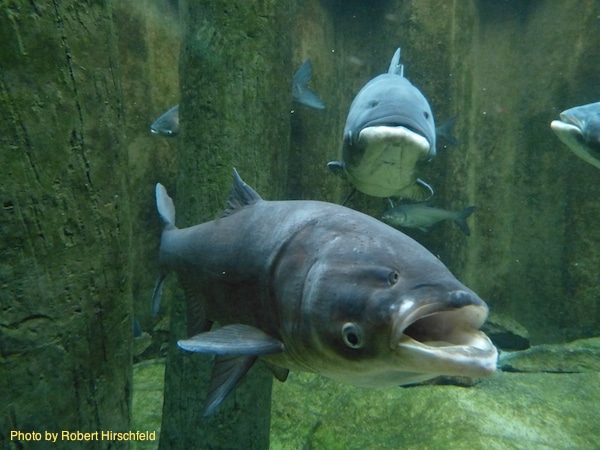This past weekend marked a significant development toward permanently protecting the Great Lakes from the dreaded Asian carp and revitalizing the Chicago River system.
During a panel discussion at the Council of Great Lakes Governors, Illinois Governor Pat Quinn publicly stated his support for the separation of the Great Lakes from the Mississippi River.
Speaking about the need to prevent Asian carp from entering the Great Lakes, Governor Quinn said, “Ultimately, I think we have to separate the basins. I really feel that is the ultimate solution.”
That Governor Quinn’s comments were made at the Council of Great Lakes Governors is significant. The Asian carp issue has been a contentious one among the Great Lakes states, including a lawsuit filed against Illinois by other states. Yet there will be no solution without regional cooperation. That’s why it is heartening that Governor Quinn is rising above past conflict and taking a leadership role. Hopefully this marks the end of the era of Great Lakes states suing each other over Asian carp, and the beginning of new cooperation on a permanent solution that protects both basins and the Chicago River system from potential invaders.
As part of the Healthy Water Solutions coalition, we are greatly encouraged to hear Governor Quinn support separation, a project that would not only stop Asian carp, but would also help restore and improve Chicago area waterways. We thank and commend him for his leadership on this issue. Quinn’s remarks build on years of work by the Illinois Department of Natural Resources to keep Asian Carp from invading Lake Michigan, and to plan for a permanent solution. We look forward to continuing to work with Governor Quinn and his team to make that solution a reality.
After his statement drew applause from those in attendance, Quinn remarked, “I hope you’re clapping when Congress comes to invest the money. It has to be a national project.”
He is absolutely correct. Our waters cannot be looked at piecemeal, or none of our most pressing problems—carp, pollution, flooding—will be fixed. Congress must act. And we will need the other states in the region to support a new and improved Chicago waterway system.
That means we have a long way to go. The good news is that our leaders are waking up to the opportunity of the present.








